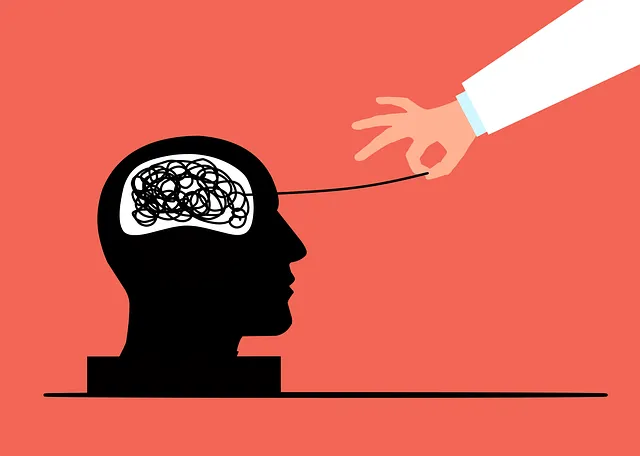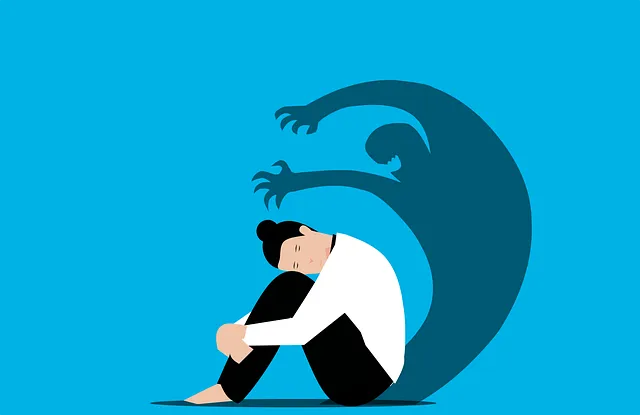The Boulder Kaiser Permanente Mental Health Center employs a holistic approach to stress management, addressing its impact on both mental and physical well-being. They offer evidence-based methods such as Cognitive Behavioral Therapy (CBT), mindfulness practices, and practical resources like journaling and exercise guidance. By combining these techniques with physical activity, proper nutrition, sleep, and social connections, the center equips individuals with tools to prevent burnout, enhance resilience, and improve overall mental wellness, especially in high-stress professions.
Stress reduction is a vital aspect of maintaining optimal mental and physical health. At Boulder Kaiser Permanente Mental Health Center, we delve into effective strategies to combat stress, offering a comprehensive guide for overall well-being. From cognitive behavioral therapy (CBT) to mindfulness practices, this article explores powerful tools for managing stress. Additionally, we uncover the significance of holistic approaches, including nutrition, exercise, and social connections, providing a multi-faceted strategy to reduce stress and enhance your quality of life.
- Understanding Stress: Its Impact on Mind and Body at Boulder Kaiser Permanente Mental Health Center
- Cognitive Behavioral Therapy (CBT): A Powerful Tool for Stress Management
- Mindfulness Practices: Cultivating Presence to Reduce Stress
- Physical Activity and Exercise: The Role in Stress Reduction Strategies
- Holistic Approaches: Nutrition, Sleep, and Social Connections for Better Mental Well-being
Understanding Stress: Its Impact on Mind and Body at Boulder Kaiser Permanente Mental Health Center

At Boulder Kaiser Permanente Mental Health Center, understanding stress goes beyond its immediate effects on daily life. Stress is a complex response that impacts both mind and body, triggering a cascade of physiological changes. When faced with stressful situations, our bodies release hormones like cortisol and adrenaline, preparing us for what’s known as the “fight or flight” response. While acute stress can enhance focus and performance, chronic stress has detrimental effects on mental wellness. It can lead to anxiety, depression, and even physical ailments such as heart disease and weakened immune systems.
The center recognizes these challenges, particularly among healthcare providers who often face high-stress work environments. They offer valuable resources like Mental Wellness Journaling, Exercise Guidance, and Mindfulness Meditation techniques to help manage stress effectively. Through these initiatives, Boulder Kaiser Permanente aims to equip individuals with burnout prevention strategies, fostering a healthier and more resilient approach to mental health.
Cognitive Behavioral Therapy (CBT): A Powerful Tool for Stress Management

Cognitive Behavioral Therapy (CBT) is a highly effective and evidence-based approach to managing stress, offered by many mental health professionals, including those at Boulder Kaiser Permanente. This therapy focuses on identifying and changing negative thought patterns that contribute to excessive stress and anxiety. By challenging these unhelpful thoughts and replacing them with more realistic and positive ones, CBT empowers individuals to develop inner strength and resilience.
Through various techniques, such as mindfulness meditation, CBT teaches individuals to be present in the moment, observe their thoughts without judgment, and gradually reduce the impact of stressful situations. It also involves setting achievable goals and learning effective problem-solving skills, which are crucial for risk management planning for mental health professionals. This comprehensive approach not only helps manage current stress levels but also equips people with tools to prevent future stress from becoming overwhelming.
Mindfulness Practices: Cultivating Presence to Reduce Stress

At the Boulder Kaiser Permanente mental health center, mindfulness practices have emerged as a powerful tool to reduce stress and promote overall well-being. These practices encourage individuals to cultivate a sense of presence in the moment, focusing on their senses and emotions without judgment. By integrating mindfulness into daily routines, whether it’s through meditation, deep breathing exercises, or mindful eating, people can significantly lower stress levels and improve mental clarity.
The effectiveness of mindfulness is supported by extensive research, highlighting its ability to activate the body’s relaxation response and regulate emotional reactions. This simple yet profound practice offers a natural and accessible way to navigate life’s challenges without resorting to unhealthy coping mechanisms. Through public awareness campaigns and crisis intervention guidance, the Boulder Kaiser Permanente mental health center aims to empower individuals to develop a robust self-care routine centered around mindfulness practices for better mental health.
Physical Activity and Exercise: The Role in Stress Reduction Strategies

Physical activity and exercise play a pivotal role in stress reduction strategies, as advocated by experts at Boulder Kaiser Permanente mental health center. Regular movement not only improves physical health but also acts as an effective antidote to mental strain. When incorporated into daily routines, activities like aerobic exercises, yoga, or even brisk walks can significantly lower cortisol levels, the primary stress hormone. This physiological impact translates into improved emotional well-being and a greater sense of calm.
Moreover, engaging in physical activity serves as a valuable distraction from stressful thoughts and triggers. The focus required during exercise shifts attention away from stressors, fostering a state of mindfulness that can be extended beyond the activity. This mental respite is particularly beneficial for healthcare providers grappling with Burnout Prevention Strategies, where mindful movement can help reset and rejuvenate, ultimately enhancing patient care and professional satisfaction.
Holistic Approaches: Nutrition, Sleep, and Social Connections for Better Mental Well-being

At the Boulder Kaiser Permanente mental health center, holistic approaches to stress reduction are encouraged, focusing on interconnected aspects of nutrition, sleep, and social connections for enhanced mental well-being. Proper nutrition plays a vital role in mood management, with balanced diets supporting brain chemistry and energy levels throughout the day. Incorporating regular sleep routines, tailored to individual needs, is equally crucial; sufficient rest enables the mind and body to rejuvenate, promoting resilience against stress.
Social connections, another cornerstone of holistic mental health, offer trauma support services and foster a sense of belonging. Building and maintaining strong relationships can provide emotional guidance and enhance coping mechanisms, contributing significantly to one’s overall mental wellness. In addition, engaging in activities like journaling or mindfulness exercises under expert guidance can serve as effective stress reduction tools, complementing these holistic practices for a comprehensive approach to mental wellness.
Stress reduction is a holistic journey that can greatly enhance your overall well-being. As demonstrated by the expertise at Boulder Kaiser Permanente Mental Health Center, combining evidence-based practices like CBT, mindfulness, physical activity, and holistic approaches such as nutrition, sleep, and social connections can effectively combat stress. By incorporating these strategies into daily life, individuals can navigate life’s challenges with resilience and promote a healthier, happier mind and body.






